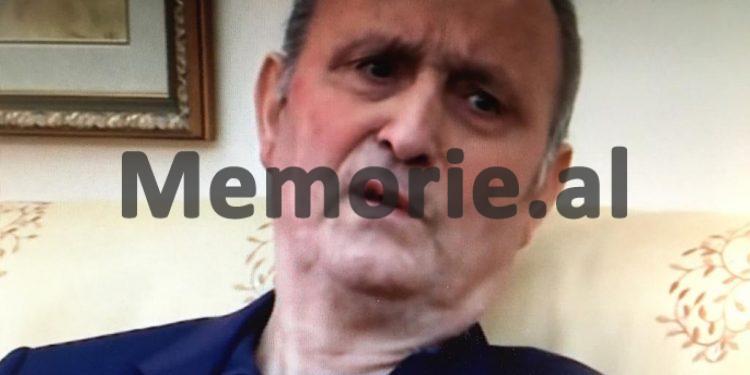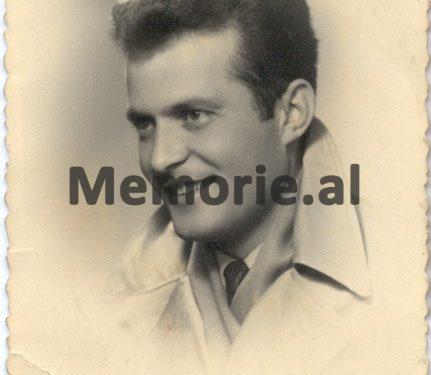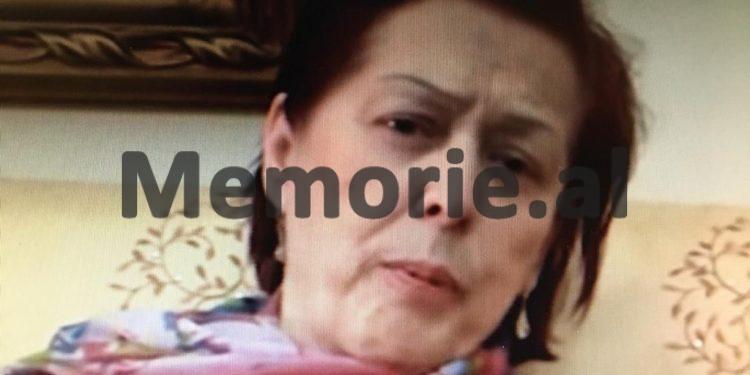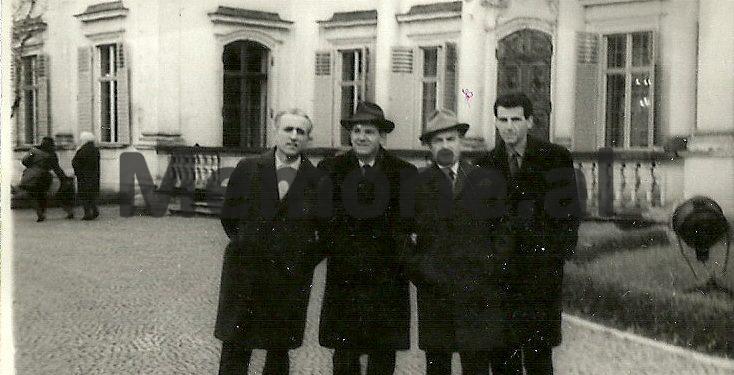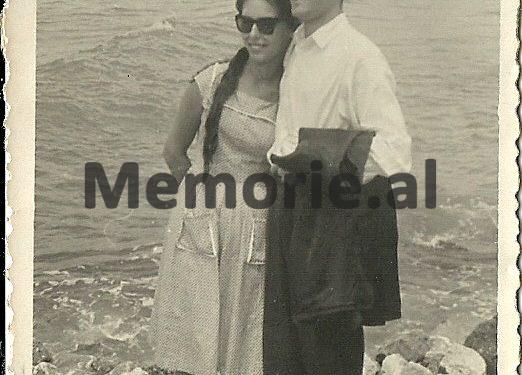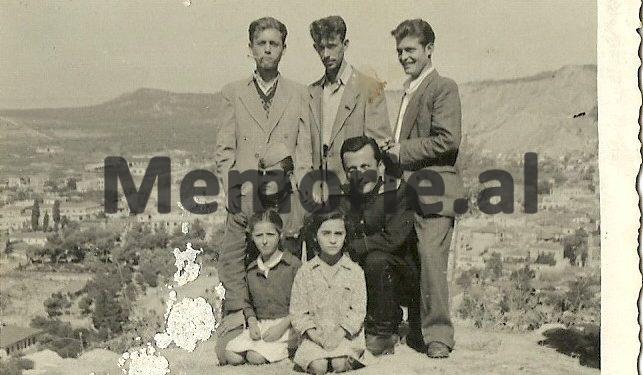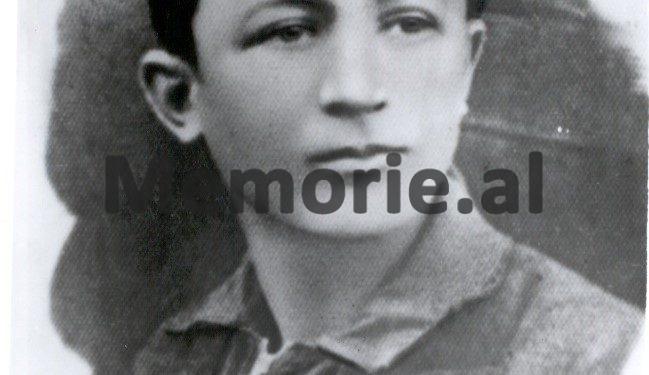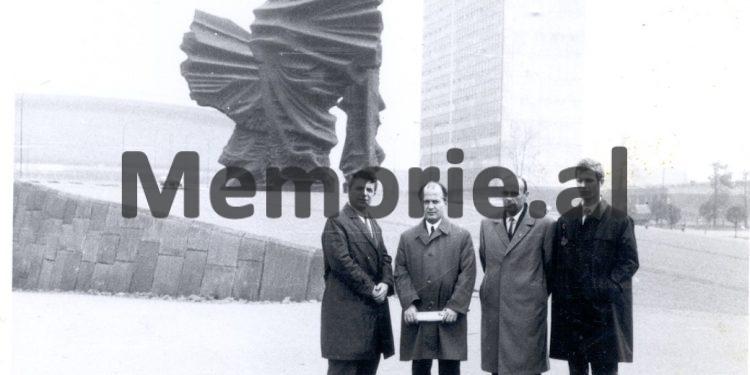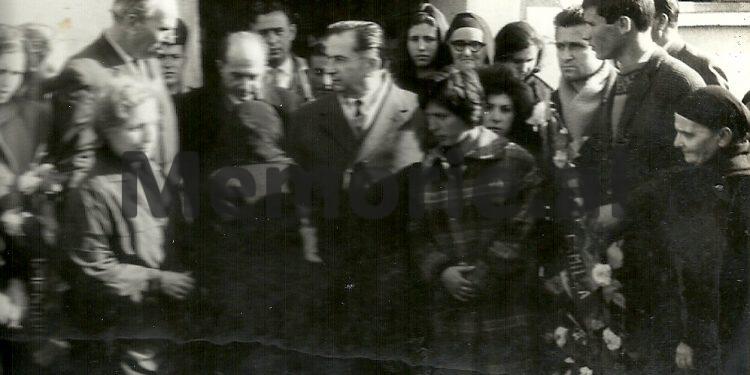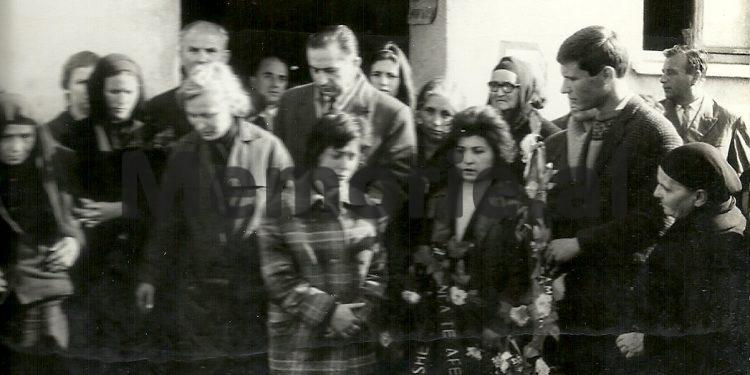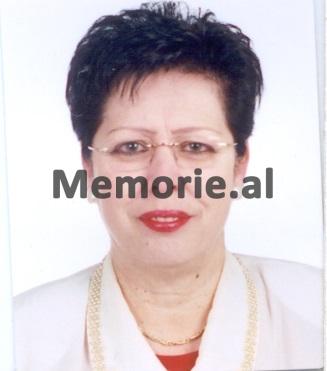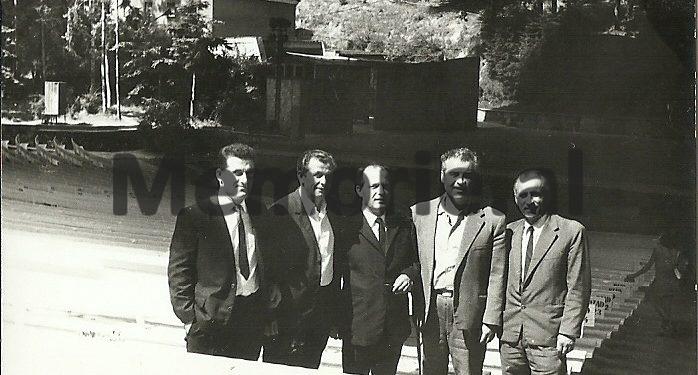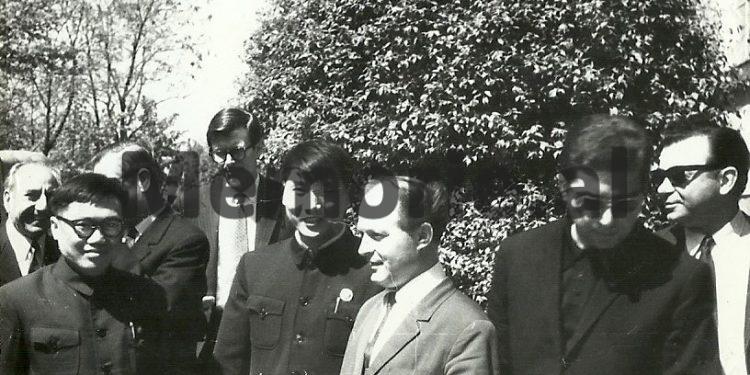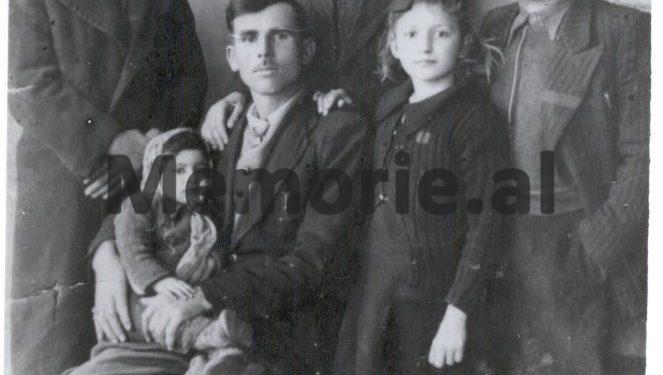Dashnor Kaloçi
Memorie.al publishes the unknown story of the jury and the prosecutor, Kristaq Ngjela, who in 1975, when he was the Prosecutor of the Tropoja district, learned that his quantum (brother’s brother), Vedat Buzi, a graduate of Industrial Chemistry in Warsaw, Poland in the late 1950s, after a group of 12 people, most of whom, like him, graduated from Poland, were accused of being “Polish agents” and tortured by a friend. his close one, whom the family kept as the son of the house. The rare testimonies of Kristaq Ngjela, regarding the vicissitudes he went through with his colleagues, from the moment he went home to his brother-in-law and found investigators doing a house search, the pressures made by the General Prosecutor, Dhori Panariti for him to divorce his wife, Luftare Buzi after his brother turned out to be an “enemy of the people” even though the other brother, Hiqmet Buzi, was a “People’s Hero”, and their father a “Martyr of War”, to the point that his colleagues and his friends in the town of “Bajram Curri” where he continued to work as a District Prosecutor… ?!
“I did not leave the place without intervening to at least allow him to meet the aunt who had raised him. She met him at the inquest, and when he came he told us: ‘Booo, what did they do to the boy… and who, one of those who had a close friend…’? It was the Director of the Tirana Directorate of Internal Affairs, Nusret Dauti, the first cousin of the Minister of Internal Affairs, Kadri Hazbi Dauti. My friend, Luftarja knew him better than he had been a close friend of Vedati, as their two brothers, who were martyrs and with the title “People’s Hero”, Hiqmet Buzi and Mit’hat Dauti, had also been friends. during the war. And based on this fact, Luftarja had told me that Nustreti was constantly coming to their house, and that desolate old woman, their hallo, said 100 times “bad mother, bad mother” and kissed her like her own son. “. The man who speaks and testifies for the first time for Memorie.al., Is Kristaq Ngjela, a well-known lawyer with high functions in the judiciary since the early ’70s and then until the early 2000’s, I which tells one of the most difficult events of his professional and family life, that of the arrest of his brother-in-law, Vedat Buzi, formerly chief engineer and Director of the Food Factory “Ali Kelmendi” in Tirana, who was sentenced to 10 years in political prison, after being accused of being a “Polish agent” along with a group of 12 people, most of whom, like him, graduated in Poland in the 1950s.
Mr. Ngjela, when and under what circumstances did you first meet Vedat Buzin, your wife’s brother?
I have known Vedat since 1970, shortly after I met Luftare, the wife I have now. That year I went and met Vedat Buzin at the “Ali Kelmendi” Food Factory here in Tirana, to tell him about our relationship. He was the chief engineer of the factory, he received me well and told me that there was no objection, but he said: “Be careful, because two pumpkins cannot be kept in one armpit. You are a young boy, that young girl, so be careful. I have no objections, but you better wait until you finish college. ” I went again later and the same conversations took place. He later, as chief engineer, became the director of the Ali Kelmendi Combine, and we moved to the district of Tropoja, where I was appointed as Prokoror of the district, and so we left a little physically.
When did you meet next?
In 1975, Vedati invited us for the first time to do the New Year for the first time with him and his sister, ordering us to find some honey for his son if we could. small, as Tropoja was known for the good honey is made. So as promised, we arrived in Tirana on December 28. We went to my sister’s house, waited for her to come, but she didn’t come. We waited at 29 and it didn’t come.
What happened to him?
We were very worried and told my sister’s son to go once and ask at the Food Factory where he was the director. He went to the combine and asked and was told that he had gone to serve in Saranda. “What is this service in Saranda, he found it today, on December 29” ?! we said to each other. We were very worried and told Luftara to go home once and see. When we got to the house, his girlfriend, who was terrified, could barely speak and could barely stand.
What did she tell you?
As soon as he opened the door, we said, “Hey, Argjiro, what are you doing?” She motioned for us not to talk and we went inside. There we found two people I didn’t know until then, and after a while they said, “Sign us this record now.” I reached out and took him by the hand and saw that there was a record of control in the house of the arrested Vedat Buzi, who was accused of “agitation and propaganda against the popular power.”
Who ordered that check?
At the end of the minutes was the name and signature of the investigator, Koço Josifi.
After you saw that document, did you talk to those two people?
We were astonished, and I turned to him, saying, ‘O investigator, do you know the rules? “But why?” He said, adding, “You are the prosecutor of Tropoja.” “What do you need, who am I?” I replied. And he continued, “Why don’t you let the lady read it?” “I know what it is,” I replied, and so we debated in this respect, until he said to me, “Will you remain wise, or how do you care?”
But who was the other person with him?
He was accompanied by one of these members of the People’s Council of the neighborhood, as they were then treated.
What did you do next?
Once we learned what the job was like, we were very worried. It was a big problem, as we were in Tropoja, while his sister Argjiro was a member of the party and there was no one to take an interest in her. Vedat’s wife, on the other hand, divorced him within a month, thus separating him from the pressure they could have put on him.
While Vedati was at the inquest, did you have any information about what was happening to him and was anyone from the family allowed to bring him food and clothing?
Not only did the investigator go unnoticed and we did not know what was going on with him, but we did not find out what happened in court because none of the family members went. Only one of their aunts went, who had raised them. And she, with great fear that these were families connected with the War, Vedat’s brother, Hiqmet Buzi, was the “People’s Hero” and their father, “Martyr of the Fatherland”, and in their family every May 5 came those of the leadership and personally, Hysni Kapo, while he was alive.
Given the fact that you were in those positions, could you intervene to ask someone what was going on with your brother-in-law?
Of course, I didn’t leave without intervening to at least allow him to meet the aunt who had raised him. She met him at the inquest, and when he came he told us, “Booo, what did they do to the boy… and who, one of those who had a close friend…” ?!
Who was he talking about?
It was the Director of the Tirana Directorate of Internal Affairs, Nusret Dauti, the first cousin of the Minister of Internal Affairs, Kadri Hazbi Dauti.
Did you know him personally?
My friend, Luftarja knew him better than he had been a close friend of Vedati, as their two brothers, who were martyrs and with the title “People’s Hero”, Hiqmet Buzi and Mit’hat Dauti, had also been friends. during the war. And based on this fact, Luftarja had told me that Nustreti constantly came to their house, and that desolate old woman, their mother, said 100 times “dear boy, dear boy” and kissed her like her own son.
Could any of Vedat’s sisters have met him before he went to court?
I later tried to get my sister, Luftarja, to meet him, and I intervened with the Attorney General, but he told me, “No, it’s not allowed.”
But you who were in that position, did we have problems, as your brother-in-law was being punished as “the enemy of the people, did anyone call you” ?!
No one called me, but I went to the office of the Prosecutor General, Dhori Panariti, on January 2, 1975, and he told me:
“Kico, it’s good that you came to me, because I would tell myself to come to me.”
“Why do you have a problem?” I replied.
“Why didn’t you find out about your brother-in-law?” He asked.
“I found out, but you found out,” I said ?!
“No, they told me it was your brother-in-law, but it was too late and I had nothing to do,” he replied.
How did the conversation go, what did he tell you next?
He told me: “Now you understand that you have to separate the woman. You will necessarily separate the woman. If you come up with something out of the ordinary, then they have to re-think their position. It turned out differently, then let’s look at it. ”
What did you say?
I said, “Comrade Dhori, you are a prosecutor after me, so I know these things better than you. I.e. You say, “We’re going out for espionage, we have nothing to do, propaganda is coming out, let’s look at it” ?!
“He said so… So talk to me as a lawyer.”
I said, “Do you mind?”
“Yes,” he told me.
“Why should I share it?” I replied.
“She is the enemy’s sister,” he told me.
“This woman of mine has a People’s Hero brother and a martyred father,” I told her.
“Let them go,” he told me, “that’s what you’re doing, so you have to separate the woman,” he said, raising his voice.
What did you say after that?
I said, “You tell me that, or does the Party tell me?”
“I don’t think the party says that.”
“But you know the rules,” he told me, “this is not the first time this has happened!”
“Don’t try in vain,” I said, “as if I were to be a woman. I have two daughters and I can’t leave them because you love me. ”
“Not that I want to,” he said, “but the Party says so.”
“I.e. let’s call this conversation closed, “I told him.
“Did you take into account that they will remove him as District Prosecutor? And we will send to an Agricultural Cooperative ”?! he replied.
“You look so weak to me,” I said, “but I know how strong I am physical, I do two norms a day. If you call it Party orientation, ask Hysni Kapon and n.q.s. he agrees, so do I.
In fact, there was a written rule for these things, am I talking about the organs of which you were a part?
There the rule was that he was a separate director who dropped the materials and looked at them, whether there was a place to arrest them or not, they then took them to the Attorney General. So in the case of Vedat, they studied the materials and told the Attorney General that there was no material here to arrest them.
But why was he arrested ?!
At the same time, the Attorney General was very inferior to the Minister of the Interior, as it was done as the State Security wanted by the Minister.
But when they returned to Tropoja, how were they received, were they aware of this problem?
When I went to Tropoja, I saw that the conversation had gone and people and colleagues started to leave me, since the Chairman of the Internal Affairs Branch and the President of the Court who entered and left each other, etc., changed my way demonstratively… Whereas the first Secretary of the Party Committee, Hysen Papa, absolutely did not take any position but continued the relations with me as before. The Investigative Chairman, Ishan Vladi, also had regular and correct relations with me.
But who else but the Branch President left or did he have a bad attitude?
The President of the Court, who was also the Party Secretary of the grassroots organization, called me and said, “Come to my office for a while,” because we were in a building. I said, “Who are you?” –
“I’m so-and-so,” he told me.
“You made me call you” ?!
“I am the President of the Court,” he told me. –
“I am the District Prosecutor and n.q.s. you have work with me, come here “, –
“No,” he told me, “I’m calling you as party secretary.”
Did you go to meet him?
I met him, he was with a deputy secretary.
“Kiço, tell us a little bit, what happened to your brother-in-law?
“I don’t know anything,” I said. “Why do you know anything?”
“No,” he said, “we’re looking at the organization to see how far we can go.” –
“If I say it in Albanian,” I told him, “tell the General Prosecutor in moderation, talk to him and I will shave my head for nothing.”
Did they take action against you?
No, this conversation never stopped.
What about when your brother-in-law appeared in court, was he a member of the family?
“No one from the family was invited to the trial, but I happened to be in Tirana that day and I went to the court, I even went once from the General Prosecutor’s Office, where I was seen by the General Prosecutor, Dhori Panariti, and she told the chief of staff: “After Kiçua came”?!
What did they say to the Court?
When I went to court, I found out what the trial of the “Polish spies” was like, but they wouldn’t let you in. Then, since I had a friend in the Supreme Court, I asked them to take the file to the Supreme Court so that I could see it for myself.
Did they give you the file?
I actually saw the file, I read it in its entirety, it was nothing to say that these specifically did propaganda agitation. Everyone, not just Vedati.
How could they have been arrested when there was nothing?
But it was just one thing that impressed me and I couldn’t solve it, it was Vedat’s complaint. The complaint stated that: “I accept the accusation made against me”, and so they called him as if he had accepted the accusation… ?!
How much was Vedati convicted?
They gave him 10 years for propaganda agitation and 4 years for abuse of office. This article on abuse of office then was a great shame, so to speak.
How did you learn of his death in prison?
Several times he sent letters that he had kidney disease and we knew it. It was only when we learned of his death that he underwent kidney surgery and died.
Who told you?
I saw it then in the communiqués that came then to the General Prosecutor’s Office, and then they found out from others, from a nurse./Memorie.al




